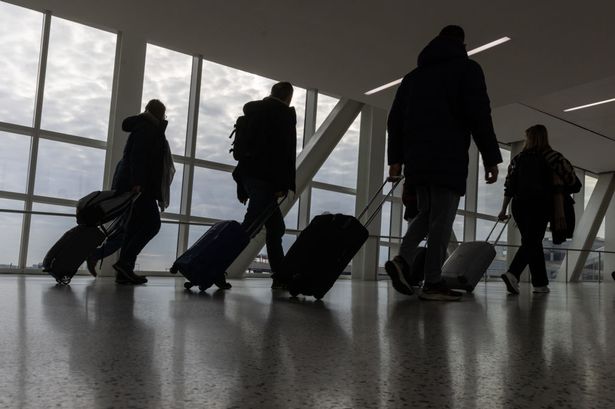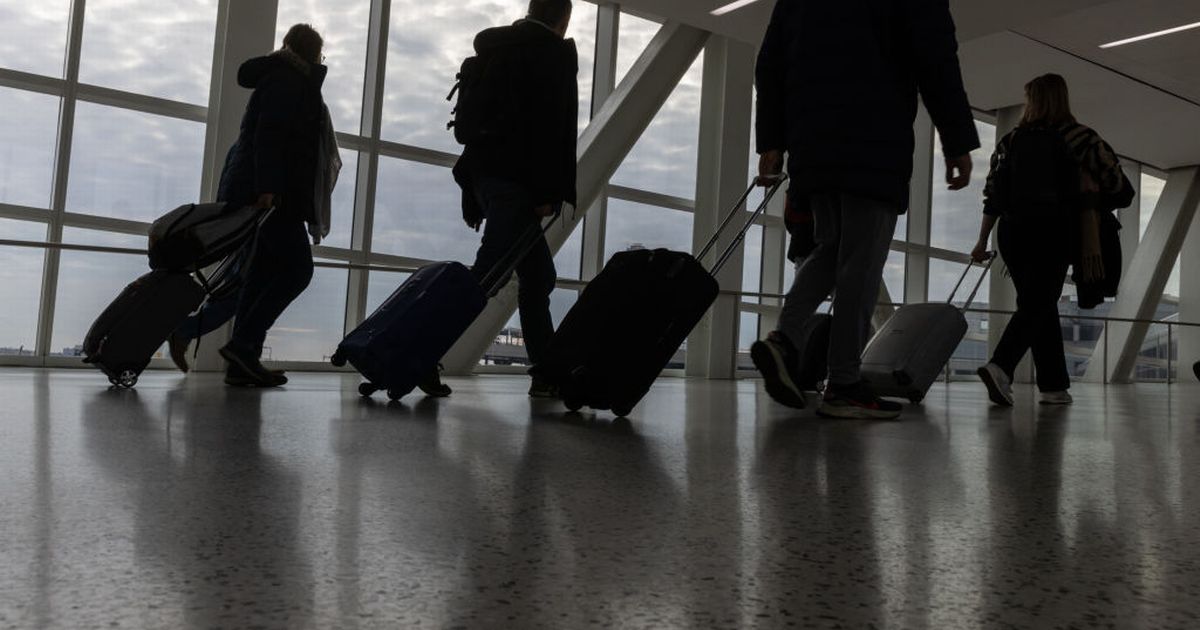UK tourists have been issued a warning ahead of the busy summer season for holidaymakers. The lesser-known rule is a somewhat recent development compared to other aviation laws(Image: Getty Images)
The lesser-known rule is a somewhat recent development compared to other aviation laws(Image: Getty Images)
British holidaymakers have been issued renewed warnings when packing portable power banks on their next getaway. Some of the favourite countries for British tourists like Spain, Italy and Greece all sign up to the ban that was initially introduced in 2016, but is more enforced now than ever.
The UK Civil Aviation Authority (CAA) is responsible for regulating and overseeing aviation safety for people coming and going from the UK. They issued a renewed warning to travellers, reminding them that portable chargers are not allowed in checked luggage due to their risk of catching fire, which could prove deadly.
They must instead be kept in a travellers carry on and also be turned off completely and not in standby mode. Many power banks only turn on when they have a device plugged in, but the rules are very clear.
If a portable power bank becomes faulty or damaged, they can cause an intense fire which couldn’t be dealt with if it happened in the hold. Many cheap power banks have been on the market for years now, made with more fragile components which could lead to a higher risk to passengers on a flight.
The CAA say: “Poorly manufactured, faulty and misused lithium batteries and those which have not been protected against short circuit can experience something called ‘thermal runaway’. This results in them getting so hot that they can catch fire, explode and ignite other nearby batteries.”
Just at the start of this year, a South Korean Airbus A321 caught fire shortly before takeoff. South Korea’s transport ministry said that interim investigation results indicate the fire may have started because insulation inside a power bank battery stored in the overhead locker had broken down.
As a result of the fire, Air Busan has said that passengers need to keep the devices on their person at all times rather than in any baggage stored on the plane. Many of the safety concerns involve the lithium-ion batteries inside the devices, which can produce extreme heat and fire if damage or manufacturing faults cause them to short-circuit.
Current guidelines for most aircraft in Europe are as follows:
- Power banks must be placed in hand luggage only and never checked into the hold.
- Generally, they cannot exceed 100 watt-hours, however some airlines may allow 160 watt-hours. It is recommended to check with your airline before flying.
- Each device must be protected individually. This can be done by taping the terminals or placing each power bank in a seperate plastic bag.
Some suitcases now come fitted with power banks and charging ports, handy when needing to charge your devices in transit, but not for following airline regulations. Any power bank built into smart luggage must be disconnected before being carried into the cabin.
Check with your airline before you fly, as many have their own set of preferences they instruct passengers to follow. EasyJet allows passengers to carry power banks in their carry-on baggage, but must be individually protected to prevent short circuits. There is also a limit of two power banks per passenger, and power banks must also have a capacity of 100 watt-hours or less.
